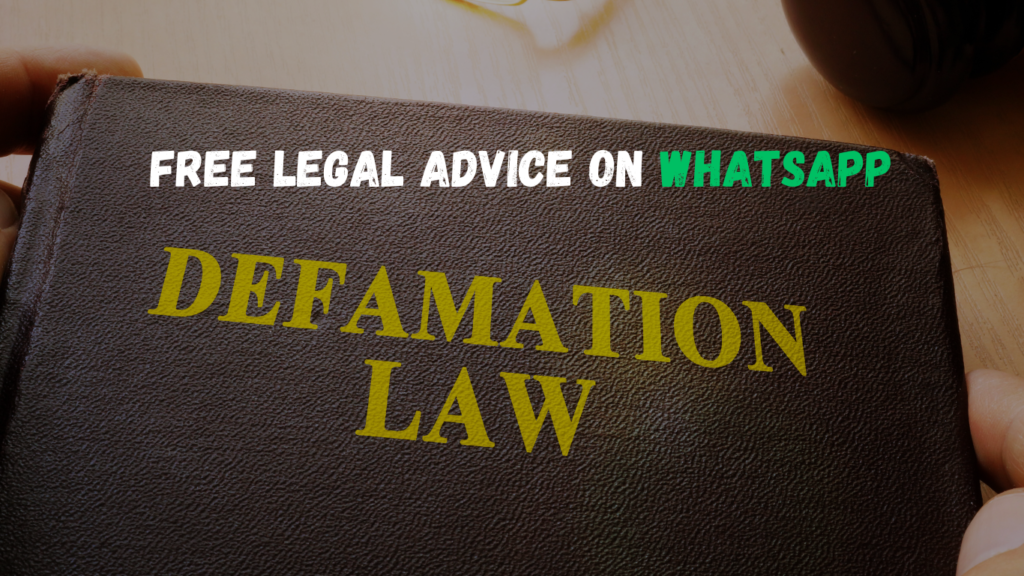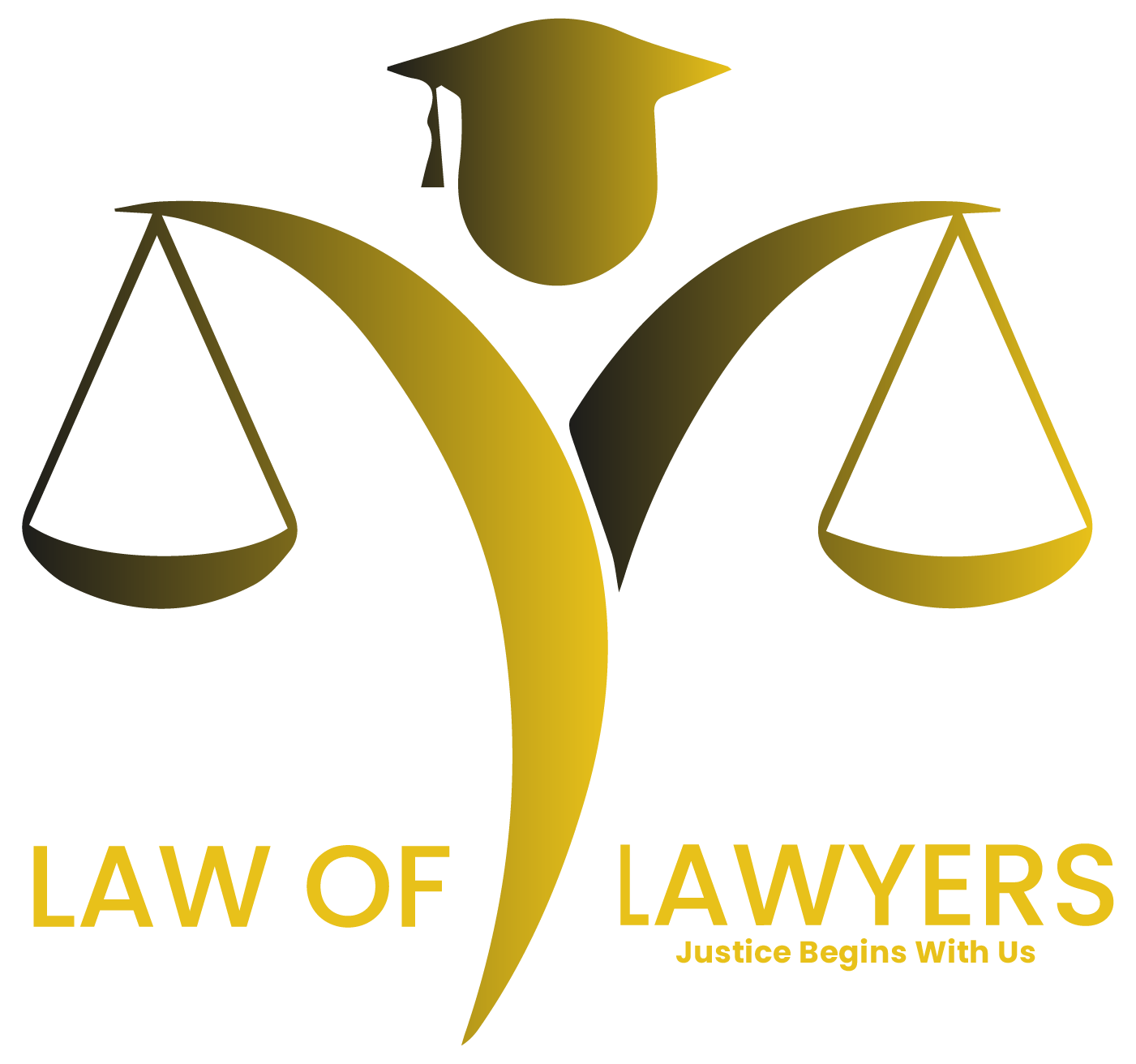How to Find Right Advocate for Defamation Law in Pakistan

Defamation Law in Pakistan | Law Of Lawyers In Pakistan, a defamatory act is defined as destroying or diminishing the reputation or respect of a person/association/group/company. A person’s intellectual capacity can be degraded and humiliated by gossiping, spreading rumors’, making false allegations, malicious prosecution, abusive language, insulting, backbiting, or “backstabbing,” whether the person is directly attacked, their family, their business, their friends, or their caste. Here, we discuss how the Pakistani laws on defamation can be implemented and explain the related legalities. We will also examine their punishments, sequences, and chances of success. For more information, contact our Law Of Lawyers. What is the process for filing a defamation suit in Pakistan? You may sue someone for defamation if you feel they have defamed you. Pakistan allows you to sue the person who made the defamatory statement for libel. To file a defamation suit, you must identify the person who made the statement. The next step is to gather evidence to support your claim. For example, the person who made the defamatory statement may have left you a written statement. You may need to testify in Court unless you find such a statement. The Laws of Defamation in Pakistan According to the Gazette of Pakistan, the Defamation Ordinance was published in 2002, covering defamation laws in Pakistan. The Ordinance emphasized online bullying and effective remedies and guidelines for enforcement and punishment. According to the Supreme Court of Pakistan, Islam regards the right to honour as sacred. That means not only should the violation be punished and compensated, but it must also be prevented. On the one hand, the victim is protected, but on the other hand, those who violate it must be held accountable (Citation: 2008 SCMR 1118). As defined in Section 499 of the Pakistan Penal Code, defamation refers to the act of making or publishing any imputation concerning any person intending to [them], or knowing or having reason to believe such imputation will harm the reputation of such person, is said [to] defame that person by either speaking or writing or by signs or by visible representations”. What are the consequences of defamation? Defamation in Pakistan is punishable by up to two years in prison and a fine of up to 500,000 Pakistani rupees (about US$2,500). Intentionally publishing false information is defined as harming the reputation of another person. Libel and slander are both types of defamation. Imagine the victim is a public figure, such as a politician or celebrity. If that is the case, the perpetrator must also prove that they made defamatory statements with malice, which means they knew or acted recklessly, disregarding the truth. Even though defamation is technically a criminal offence, it is often difficult to prosecute successfully. If defendants cannot prove their statements were factual or argue that they made them in good faith and without malice, they can avoid conviction. In this way, defamation suits are often used to silence critics instead of securing justice. Especially in Pakistan, libel laws have repeatedly been used to stifle dissent and curtail freedom of expression. For example, journalist Iftikhar Ahmad was sued for libel for writing a critical article about Pakistan’s intelligence services in 2011. Defamation according to Pakistani Law All matters relating to defamation accrued in Pakistan are covered by the Defamation Ordinance 2002: Defamation is defined in Section 3 of the Defamation Ordinance 2002 If a wrongful act, publication or circulation of a false statement or representation in words or pictures injures a person’s reputation, lowers his estimation by others or reduces him to ridicule, unjust criticism, dislike, contempt or hatred, it will be considered defamation. There are two types of defamation: (i) slander and (ii) libel. False oral statements and representations that amount to defamation are actionable as slander. Libel is actionable in any case where false or defamatory written or visual statements are made through ordinary methods or expressions, electronic communication devices, or any other modern means. Defamation is actionable under Section 4 Defamation is an actionable wrong without proof of special damage to the person defamed; where defamation is proven, damage is presumed. Section 5 of the Code of Criminal Procedure makes provisions for defenses to the law of defamation. A person can defend himself against defamation if he shows: The statement complained of was not written, edited, published, or printed by him; A fair and public interest matter was discussed and expressed as an opinion rather than an assertion of fact. Based on truth, it serves the public interest. The plaintiff consented to the publication. The defendant offered to publish a proper apology, but the plaintiff refused The plaintiff refused to print or publish a contradiction or denial in the same manner and with the same prominence. This was a matter of privileged communication between a lawyer and a client. A matter is covered by absolute or qualified privilege. According to Section 7, certain things are exempt from defamation: Qualified Privilege: Publications of parliamentary and judicial proceedings attended by the public and statements made to the appropriate authorities to obtain redress of public grievances will be protected by qualified privileges. According to Section 8, the plaintiff must give the defendant a notice of action before any legal action can be brought against the defendant. For the plaintiff to bring an action, he must provide the defendant fourteen days’ written notice of his intention to bring an action within two months after the defamatory matter was published, describing the defamatory matter complained about. In the event of defamation, Section 9 provides remedies: Remedies: Should defamation be proven to have occurred, the Court may order that the defendant submit an apology to the plaintiff and, if acceptable, publish the apology in a similar manner and with the same prominence as the defamatory statement, and pay a reasonable amount of compensatory damages. A minimum of Rs. fifty thousand will be paid as general damages in the event of defamation. In section 10, Defamation proceedings are mutatis mutandis subject to the CPC
